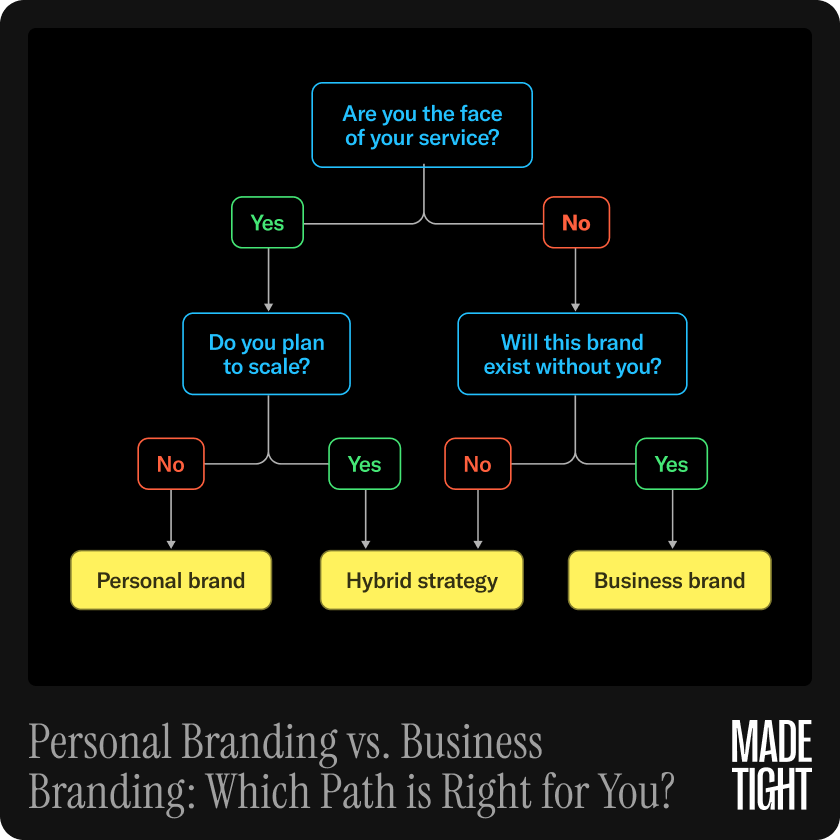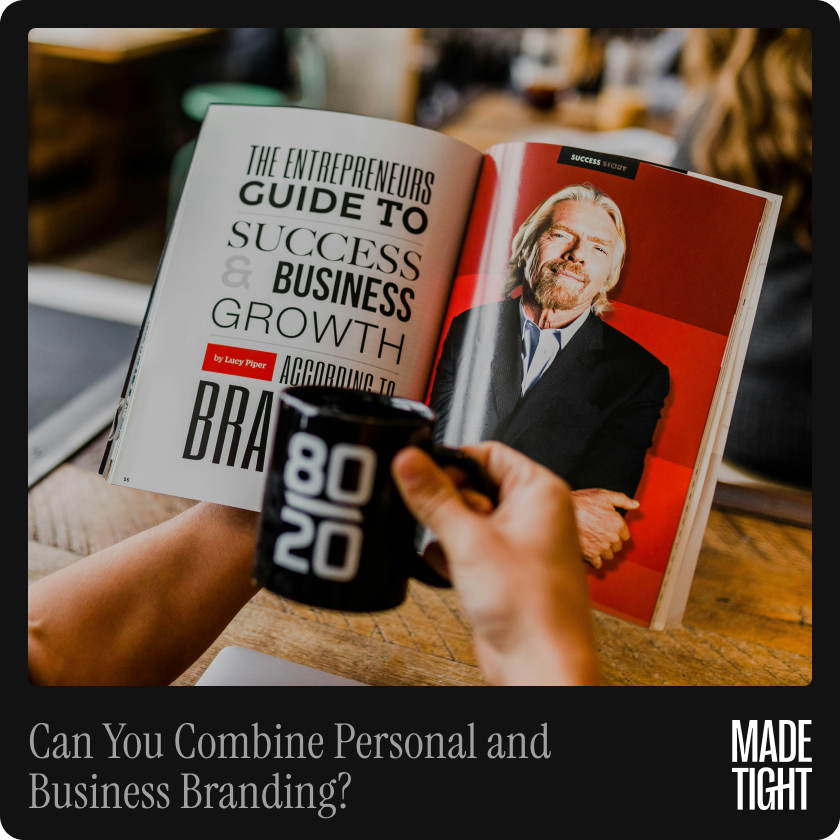
That being said, personal branding and business branding are not entirely mutually exclusive strategies. Both have their merits and their applications, but they’re not the same.
Knowledge of the differences helps you make the right decision depending on your goals, whether you are a freelancer, an entrepreneur, or a company operator. In this guide, we will compare the two, explain how each works with real-world examples, and give practical branding advice.
Personal branding is the persona of you and your brand: your name, face, voice, and story. This is how people perceive you as a professional, academic, brand, or personality. If you are a coach, consultant, artist, or public figure, your persona remains the main thing that clients focus on.
It’s about what you believe in, the values of your brand identity, and how you communicate with your public. Your values, personality, and lifestyle can become part of your brand. In personal branding, identity marketing is not just a concept of selling a product; people believe in you.
Some well-known personal brands include:
People must understand that personal branding is about names and faces, maintaining closer contact with your target markets.

Business branding is more about the company rather than the personality. It is all about building a brand that is independent of any individual personality or any given personality. This is ideal for large businesses, physical shops, stores, agencies, or any business dealing in tangible products.
A business brand is the name, logo, sound, and way it stands or presents itself to the market. Brand equity means your business is perceived as different, credible, or premium, depending on the strategy you wish to adopt.
Some examples of business branding include:
These people invested in these companies because of their reputation, quality of products, and identity marketing, not because of one person.
Your market perception of a brand emerges from brand positioning. Every business needs to know exactly how customers view them personally and commercially. Are you an affordable option? The expert? The high-end choice?
Your position in personal branding builds from what customers recognize about you through your personality, attributes, and values. Fitness coaches establish themselves as the "friendly motivator" or the "no-excuses trainer" to customers.
Business branding mainly emphasizes the products you offer and your solutions to market problems. Startups in the tech sector position themselves as "the easiest app for beginners" while offering "the safest platform for families."
Customers prefer businesses that clearly explain what they provide because these messages help customers make better purchasing decisions.
Establishing a marketing identity involves developing a brand that resonates with the audience's emotional connections or self-representation.
Your personal brand depends heavily on emotional market elements through identity marketing. Your audience will select you when they perceive parallels between your personal story, core beliefs, or life force. It's human-to-human.
Business branding depends on identity marketing since customers must understand how products or services enhance their daily experiences. Your company can attract customers through its mission, design principles, and product quality rather than individual personality traits.
The two methods establish connections through separate mechanisms, although they produce effective results.
People who pursue personal branding should establish genuine, authentic relationships with their audience. Use your birth name in all your social media content, authentic images of yourself, and your voice in its natural style. This approach creates an authentic feeling that helps your audience perceive you as someone they personally know. A personal brand works best when others develop genuine respect and connection toward you.
Business brand creators should develop their core foundation before starting work. Your brand needs a comprehensive guide that should include essential elements like the logo and its color scheme, the selection of fonts, and the tone of communication. The brand elements create a recognizable pattern through which people can easily identify your company while building trust in your business.
Always prioritize connection, as it is the essential element regardless of whether you use personal or business branding. The public seeks trust in the brands that they decide to support. They are searching for genuine value and authentic individuals who represent the brand.
Any brand becomes stronger and more trustworthy through straightforward message delivery, consistent style elements, and approachable verbalization.

Yes, many people do. Some entrepreneurs launch themselves as personal brands before expanding into business branding. You can link your brand to your business ownership or promote your company through personal branding.
According to Edelman’s Trust Barometer, 63% of people trust a brand more if its founder is active and visible on social media. This means building a personal brand — even alongside a business brand — can help boost trust and visibility.
Think of Richard Branson. His personal branding efforts coexist with his establishment of Virgin, which became famous as a business brand. Although his personal attributes provide the company with added value, he is not essential for the brand to exist independently.
Personal and business branding can succeed if you define the separation between entities and their roles.
When choosing between personal branding and business branding, ask yourself:
Personal branding would be most suitable if your business relies on your unique skills, personality, or the story you represent to customers. Business branding emerges as the better option for building scalable ventures designed for sale.
Effective success requires both paths to develop clear brand positioning combined with identity marketing emotional connections augmented by wise branding methods.
Select the brand that suits you best while ensuring it stays crystal clear and authentic to your identity.


